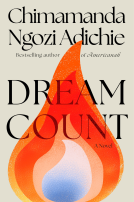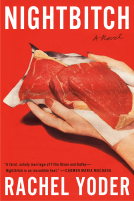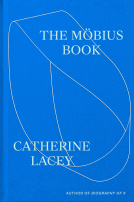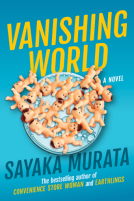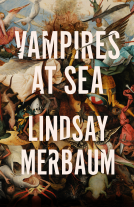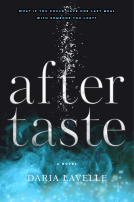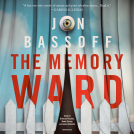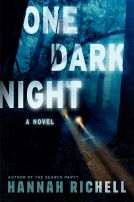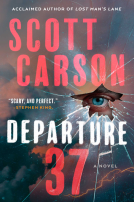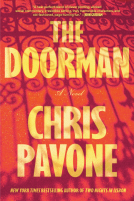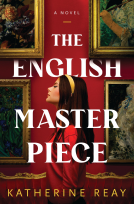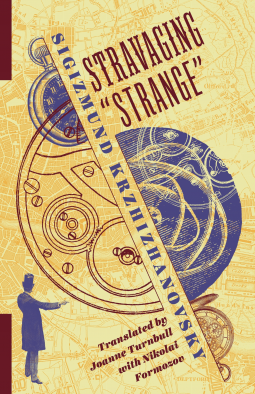
Stravaging “Strange”
by Sigizmund Krzhizhanovsky
This title was previously available on NetGalley and is now archived.
Send NetGalley books directly to your Kindle or Kindle app
1
To read on a Kindle or Kindle app, please add kindle@netgalley.com as an approved email address to receive files in your Amazon account. Click here for step-by-step instructions.
2
Also find your Kindle email address within your Amazon account, and enter it here.
Pub Date Feb 28 2023 | Archive Date Jun 01 2023
Talking about this book? Use #ColumbiaUP #NetGalley. More hashtag tips!
Description
“Stravaging ‘Strange’” details the darkly comic adventures of an apprentice magus: lovesick, he imbibes a magic tincture to reduce himself to the size of a dust mote, the better to observe the young lady in question. He stumbles across a talkative king of hearts, a gallant flea, a coven of vindictive house imps, and his romantic rival along the way to a cinematic dénouement. “Catastrophe” wryly parodies Kant’s philosophy: an old sage decides to extract the essence from all things and beings in a ruthless attempt to understand reality—and chaos ensues. “Material for a Life of Gorgis Katafalaki,” set in Berlin, Paris, London, and Moscow, recounts the absurd trials of an otherworldly outsider of uncertain nationality and unfixed profession with boundless curiosity but scant means.
This book also includes excerpts from Krzhizhanovsky’s notebooks—aphoristic glimpses of his worldview, moods, humor, and writing methods—and reminiscences of Krzhizhanovsky by his lifelong companion, Anna Bovshek, beginning with their first meeting in Kiev in 1920 and ending with his death in Moscow in 1950.
Advance Praise
"It is now clear that Krzhizhanovsky is one of the greatest Russian writers of the last century."
—Robert Chandler, The Financial Times
"Krzhizhanovsky is often compared to Borges, Swift, Poe, Gogol, Kafka, and Beckett, yet his fiction relies on its own special mixture of heresy and logic...phantasmagoric."
—Natasha Randall, Bookforum
"Krzhizhanovsky is unmatched for the droll humor with which he fictionalizes philosophers, from Kant to the imaginary Katafalaki. 'Logic for children,' he wrote in his notebook; yes, children of the universe, old as we are, and still bewildered. I am so grateful for his gentle pathos in the face of great odds."
—Ange Mlinko, author of Venice: Poems
Available Editions
| EDITION | Other Format |
| ISBN | 9780231199476 |
| PRICE | $17.95 (USD) |
Available on NetGalley
Featured Reviews
Book Review - Stravaging "Strange" by Sigizmund Krzhizhanovsky; translated Joanne Turnbull with Nikolai Formozov.
⭐️⭐️⭐️⭐️
This was an ARC provided by NetGalley.
This book is made up of 3 stories :
Stravaging "Strange" (1924) - This tells the fantastical tale of "miniaturisation, maturation and loss". Our magus takes a tincture which makes him the size of a dust mite. He meets the King of Hearts, house imps, and various creatures within a watch (as you do) - but to me, it is ultimately a tale of love, jealousy, and revenge. There are clear influences from HG Wells Invisible Man and Swifts Gullivers Travels.
Catastrophe (1919-22). The synopsis states that this is a wry parody of Kant's philosophy, and I'll just have to take their word for it as this one went over my head. My knowledge of philosophy is limited to the ancient greats of Plato and Aristotle and I had no idea what was going on 🤔
Material for a Life of Gorgis Katafalaki (1933). This was my favourite, not least because our pragmatist was entirely reminiscent of Don Quixote with foolish naivety and eternal optimism. We follow Gorgis as he travels from Russia to Berlin to Paris and to London on various endeavours not often successful.
This book also includes exerpts from the authors notebook and reminiscences from his companion, Anna Bovskek. I found these equally if not more fascinating and provided extra layers and insight to the stories - especially when you look at the context of the time they were written (following WW1, the Russian Revolution, advances in science).
This is a book you could re-read and take different meanings from every time. A solid 4/5 for me.
Oh, dear. This book was something, something like Alice in wonderland for adults.
Alice in wonderland, meets Flatland, meets Kafka, meets Gogol,
I almost feel like all one needs to know about this author is that in his notes for future works he out down things like “briefcase carriers”, “marvelousl adventures inside a manual of logic” and, possibly the saddest thing I’ve ever read, “Yes, I love myself; but it seems my love is unrequited.”
Krzhizhanovsky was a new name to me and he seems to have struggled to get published and find success, which is a shame because this is mind boggling and fantastical stuff, it is inventive yet emotionally resonant, and just takes the strangeness of Gogol’s legacy into a new era.
The first story was probably the best, “Stravaging ‘Strange’” which is in essence the Alice in Wonderland story of drinking something and shrinking in size and wacky adventures ensues. Although in this case it is more horrifying run ins with dust-Imps who whisper in peoples ears, being trapped, becoming corrupted by your desires, getting lost in a clock having to fight against time bacilli, and finally murder. Some of this stuff was truly nightmare stuff, while highly entertaining at once. Who thinks of stuff like this?
“Before my wanderings in watch-face land, I had thought that the concepts of order and time were inseparable: my own experience debunked that fiction invented by metaphysicians and watchmakers. In fact, there was more chaos than order! True, almost every Second, say, having plunged its stinger into a person’s brain, would dart away and slip back under the watch face glass to life out its life in complete idleness and peace. But sometimes time bacilli, having fulfilled their purpose, would refuse to yield to the new swarms come to relieve them; they would continue to to parasitism a person’s brain and thoughts, aggravating old bites with their empty stingers.”
After which the main character stars imagining a vaccine against time.
It is a peculiar story to say the least.
Then there was “Catastrohpe” which was a chaotic little interlude.
And then came a story about Gorgis Katafalaki which was strangely moving and sad, about a man who keeps trying to be as remarkable as he believes himself and his thoughts to be, but flitting from one field to another, trying to make it in a world that’s as unstable as he is.
“Those words stuck in Katafalaki’s mind. He had no intention of becoming lost. People like him did not grow on trees. We’re he to lose himself, Gorgis Katafalaki, in the metropolitan maelstrom, where would you find another?”
And I agree, where would you find another dedicated investigator of haustology…
“….a haustologist has to catch yawns hidden behind palms, to hunt for them them under pursed cracks of mouths, to trace the isopropy of haustus in moist bulging eyes or driven inside quivering skin. (…) Here the investigator’s thinking ran into a knotty problem: the statistical tabulation of yawns.”
Basically, one of his fields of study - among others - is the study of yawns. It is as hilarious as it is bizarre, but it also feels like an apt commentary of academica as a lot of it does focus on ridiculously specific things that you wouldn’t imagine anyone studying or for what purpose.
All in all, this book was bloody brilliant and a terrifically confusing way to spend a day,
Do you like to feel slightly bemused and confused about what you’re reading?
Do you like things strange and a bit peculiar, steeped in the harshness of reality?
Well, this might be for you.
I’m convinced that this author will one day be recognized as someone quite brilliant and sadly unrecognized.
I am so grateful to Columbia University Press and NetGalley for the opportunity to read this ARC, in exchange for a review, I recently discovered CUP’s Russian library series, after surprisingly finding that they had published a modern copy of Avvakum Petrovich, and immediately started collecting these for more money than I care to admit. It is quite an extensive library and they are my Pokémon’s, gotta catch them all! Can’t wait for this to be published so I can add it to my shelf and revisit whatever it was that I just read… and maybe have some nightmares about my boyfriend drinking funny colored tinctures and getting small enough to crawl into the skin folds by my cuticles,,, urgh.
 Jeremy B, Reviewer
Jeremy B, Reviewer
The word stravaging means to roam, ramble or wander. This book contains whimsical, fantastic stories that pulled me along in in rapidly moving narratives about charachters who indeed have strange stravagings. The first concerns a mage's student who, much like Alice, shrinks to a miniscule size and has a series of improbrabable adventures.
In another the main charachter Gorgis Katafalki pinballs around Europe in search of a profession, propelled by the quirky interactions he has with random people. He is at times a sketcher of yawns, a dentist with some very sketchy training, a meteorologist in training, the founder of a new Soviet republic of one and the walker of all London streets.
Written in the time of Stalin's rule, the action in these stories takes place in relatively confined spaces, the meaningful interaction for the most part take place inside the charachters themselves. They are equally appropriate the confined world of the pandemic.
 Jill F, Reviewer
Jill F, Reviewer
I was really looking forward to this one. I love the dark nature of Russian literature - particularly the bleak dry humorous fatalism that is frequently found lurking in the corners. I definitely found elements of the author's wit and wry humor to suit my taste here, but a lot of the writing was kind of Vonnegut-esque in it's meanderings and that's where I kept getting lost... I need my narrative a little more structured than this, but if you are willing to follow an unusual path, this is definitely worth taking a look at.
Stravaging "Strange" (1924) - This tells the fantastical tale of "miniaturisation, maturation and loss". Our magus takes a tincture which makes him the size of a dust mite. He meets the King of Hearts, house imps, and various creatures within a watch (as you do) - but to me, it is ultimately a tale of love, jealousy, and revenge. There are clear influences from HG Wells Invisible Man and Swifts Gullivers Travels.
This book also includes exerpts from the authors notebook and reminiscences from his companion, Anna Bovskek. I found these equally if not more fascinating and provided extra layers and insight to the stories - especially when you look at the context of the time they were written (following WW1, the Russian Revolution, advances in science).
This is a book you could re-read and take different meanings from every time. A solid 4/5 for me
 Paul V, Reviewer
Paul V, Reviewer
If you're seeking short stories of literary fiction, this is not it. This will probably appeal most to Fantasy and fairly tale fans. The stories are unpredictable and well-constructed. This is from a talented writer.
I really appreciate the free ARC for review!!
 Kyle C, Reviewer
Kyle C, Reviewer
This is a curious collection of three stories by the Ukrainian-Russian author, Sigizmund Krzhizhanovsky. The first "Stravaging 'Strange'" (written in 1924) is an absurd fantasy about a man who takes a potion that can turn him into a microbe-sized miniature of himself. He talks to a king trapped in a paper playing card, fights neurons in the brain of an adulterer, is frozen in time, and discourses with an ancient Roman in faltering Latin. He muses about logic and syllogisms and repeatedly thinks about the nature of time and space but ultimately it is a hapless tale about romance and betrayal. The second story, "Catastrophe" (1919-1922), is a more absurdist cosmological tale about a thinker who ponders the universe but, when he decides to think about the world, is met with resistance (the books revolt and hide their contents). Finally, the third "Material for a Life of Gorgis Katafalaki" (1933), is a collection of anecdotes about a muddle-brained idiot ("he wears rose-colored glasses that might fall off but not break"), wandering across Europe with just thirty German words and minimal worldliness. He is confused by an encyclopedia of authors and, when finds the postnominal "Derselbe" repeated throughout, decides to travel to Berlin to find the prolific author--but accidentally becomes a brief figure of the conservative movement. Later he is hoodwinked into marrying a woman under the misapprehension that she is someone else. Finally Time asks for his wisdom teeth to be extracted. Katafalaki wants to be a polymath but he winds up as a vagabond dentist.
Krzhizhanovsky is a bewildering writer. His use of phantasm, buffoon characters and surreal plots is reminiscent of Gogol. His style of illogical whimsy also reminds me a lot of Lewis Carroll as well. But Krzhizhanovsky has a distinctive style of self-lampooning melancholy (I particularly liked the line "Of course I love myself, but it's an unrequited love"). There's a comic absurdism. In "Catastrophe" as the narrator describes the revolt of the universe, he lists a variety of inapposite catastrophes ("divided souls, smashed crockery, spilt soup"). He has a gift for aphorism ("The thing I know about Truth is that when we meet she does not bow", these are drawn from his notebooks and collected in the final section of the book). Ultimately, these stories are not simply parables of post-revolution Russia; they are the tragicomic caricatures of a mediocre Socrates never able to understand the world around him.
Thanks to netgalley for the chance to read this fantastic collection--I only wish the publishers had included more stories.
 Reviewer 499835
Reviewer 499835
The three novellas in this collection are all deeply disorienting and equally remarkable to read. Cause-and-effect are nearly absent--instead what carries the stories along from sentence to sentence is a sort of internal longing, maybe, ever-present in the narrator--a striving for connection and understanding. It felt like a singular voice, reaching out for a connection to another thinking person, while at the same time doubting there was such a connection to be found. The stories felt lonely. That the author of them felt lonely, that is--that the intellect behind the words had thrown off any belief that anyone was listening--and in this resigned state resolved to write whatever the hell he wanted. Like throwing a message in a bottle out to sea. Translator Joanne Turnbull found the bottle. I had the feeling as I read that Krzhizhanovsky had reached the perfect listener, across time, and through her translation I was also compelled to listen. Her word choices are delightfully archaic and I can't help but think they are the perfect choices to convey to me the sense of the original. The disorientation of the original. Stravaging Strange is an incomparable read in the most literal sense possible and it's a must-read for anyone who values the feeling "i've never read anything like this before.'
 André N, Reviewer
André N, Reviewer
I was given access to an ARC of this edition through NetGalley, having requested it after reading and enjoying the recent edition of Poplavsky's Homeward from Heaven.
Krzhizhanovsky is an together different trip, but also a very enjoyable one, if the reader is comfortable with lyrical and weird plots. This is a bewildering book by an author that reveals himself quite bewildering and maybe bewildered by the world, despite never giving up on trying to be himself.
This book collects 3 of his stories. The first - Stravaging Strange - is like Carroll's Alice in Wonderland meets Kafka and lets Gogol tell the tale. The second - Catastrophe - is a philosophical but very satirical comment on the effort of making sense of one's whole reality. The third - Material for a life of Gorgis Katafalaki - is even harder to characterise: the reader is shown a kind of biography of a man who has a mixture of delusions and dreams that lead him on a continued effort and hope of becoming someone remarkable, only to end up where he couldn't have imagined after an accumulation of incidents.
Together with the stories told by Krzhizhanovsky's companion, Anna Bovshek, and some loose quotes and aphorisms at the end, this book is a good insight into who this author was. A person on a seemingly never-ending discovery of himself and the world, without ever losing sight of who he is and how that keeps him at odds with the expected, travelling not only through the world but also between the odd mixture of self-deprecation and epic purpose.
 BlurbGoes H, Reviewer
BlurbGoes H, Reviewer
Stravaging “Strange”
[Blurb goes here]
Let me start by copy/pasting a quote from the Soviet era author: "I’m not on good terms with the present day, but posterity loves me." Maybe if you came across these words in the 1920s, you would either think the man to be full of himself, or you would readily ignore him. These words are an echo from the past that prove themselves to be right on the mark. Krzhizhanovsky is a superb author.
This collection of stories dwell on the fantastic. The first one, "Stravaging (to roam, to wander) Strange", asks the question: what if a potion were to make you as small as a dust mote? The apprentice mage that ingest the liquid, meets with all sort of characters, some a danger to himself, some telling their tale, some intent on helping him: house imps whispering secrets to the house's inhabitants. The King of Hearts from a deck of cards, who lost his kingdom and former three dimensional shape. Time basili, when traveling through the inner parts of a watch while mulling over a "Time Vaccine". It is through this adventure that the author deals with subjects such as infatuation, love, infidelity and loss.
While, at times, the stories on the book get a bit confusing, all are kin on detailing every aspect surrounding the characters with great precision. Something not to be taken lightly, since it's hard to find in today's myriad of literary works. Also, not something meant to be read in one sitting, as it's meant to be savored.
It's to be noted that this book includes excerpts from the author's notebooks, one such, is a treaty on the study of yawns. The mind of this man is worth exploring through his short tales and musings.
His memories of the time spent with his long life companion, Anna Bovshek, give you glimpses into his psyche, and further insight into this collection.
This is a read to explore, to enjoy. I can recommend it enough.
Thank you for the advanced copy!
This book consists all in all of three fictional and absurd stories of the Russian author Sigizmund Krzhizhanovsky, who was unfortunately unknown during his time.
I will admit that this is not my normal cup of tea and that it took some time for me to get immersed into the book but after a while I really enjoyed the beautiful absurdity of it all and got into the writing style! All three stories were interesting in a new way for me and I was able to enjoy them all (even tough Stravaging Strange was my favourite). However, at the beginning of each story I was often confused and did not fully understand what was going on but decided to go with the flow, which payed off in the end.
I’ve seen this book describes as “Alice in wonderland for adults” before and I think this fits my feelings (especially while reading the first story).
 Hanadi N, Reviewer
Hanadi N, Reviewer
Well this was definitely strange! And that’s not a bad thing at all.
I thought I was well versed in the weird genre, but this book showed me that I can still be weirded out.
I can see this not being everyone, and it’s a bit difficult to stay engaged, Buy when you stick with it and heed the detailed descriptions of the characters and their every move snd environment, it just adds to the strangeness.
It did take me a bit to become invested in this but it was worth it after I gave it my full attention.
 Gregory K, Reviewer
Gregory K, Reviewer
This is not an easy book to review. It is a collection of three short works and some excerpts from the author’s notebooks. This is Modernist literature, in the spirit of Dada and Surrealism. The stories are very fantastic, but not in any way the average reader is familiar with. It isn’t Tolkien, but more a blend of Alice in Wonderland with Franz Kafka. This creates fascinating if a bit hard to follow stories that you shouldn’t read while involved in other things. You should give some time to focus just on these stories. It will pay off. The title story is the most accessible to most readers. “Stravaging” means to wander aimlessly. The story does this a little but does have some purpose in the main character trying to get together with the woman he is attracted to. To go on this journey, he drinks a potion that shrinks him, and that’s when things get Strange, taking him though an epic journey through her room, inside of a rival’s body, and finally into the workings of a watch. None of these are described with scientific accuracy, but are turned into fantasy worlds for the author’s imagination.
This book is a translation from the Russian. The translators did an amazing job. I don’t read Russian so I don’t know how accurate the translation is, nor do I care. The English here is brilliantly written to the level of poetry - even though it is prose.
An amazing book. I read a NetGalley copy, but pre-ordered my hardcover copy before I was finished. I will definitely seek out more from Krzhizhanovsky.
For a reader, there is nothing better than discovering a new, great writer. I hadn't heard about Sigizmund Krzhizhanovsky (1887-1950) until I got a short book, "Stravanging Strange," which consists of three stories, his notes, and excerpts from his wife, Anna Bovshek's memoir. It was the perfect material to ignite my interest in this unique writer. Reading his stories reminded me of a great movie, "The Saragossa Manuscript," which, according to Kristin Jones of The Wall Street Journal, "interweaves the rational with the supernatural."
Krzhizhanovsky thought in images. The first two stories are a magical yet logical description of travels similar to Gulliver's journey but on a smaller scale. In the first story, after drinking a potion, the protagonist is reduced to the size of a "dust mote." As such, he watches his beloved in her apartment, where even the shortest distance transforms into a week-long journey. The second transformation is even more radical – this time, our hero enters the bloodstream of his rival, and there with help from his new friend Null and other equally small cells, becomes a mini David who defeats Goliath. The third story is perhaps the most realistic but also the most philosophical: it talks about Katafalaki, a man living in London, a careful observer with the eyes of a wondering child, whose project is to walk every one of London street according to the carefully hatched up plan.
The language of the stories is beautiful and unique. Apart from the already mentioned "The Saragossa Manuscript," it reminded me of some great English stories with a Kafkaesque twist and the addition of haunting longing. I read that Krzhizhanovsky spent most of his life in Moscow, giving lectures about literature and theater, and writing. He did most of his traveling through his imagination - which is the best way to travel.
Sigizmund Krzhizhanovsky has been one of my favorite writers since I first encountered one of his stories as an undergraduate. I've been delighted by the chance to read more of his work in English translation thanks to this collection (and, from the same publisher, Countries That Don't Exist: Selected Nonfiction). Being already familiar with and fond of the author, I was well-disposed toward this book from the beginning. It did not disappoint.
The stories in this collection are, as I suppose the title suggests, often strange. They're also surprisingly moving, and while it helps to have some understanding of Krzhizhanovsky's context before enjoying his stories (as with every book in the Columbia University Press Russian Library I've read thus far, the introduction does an admirable job of providing a lot of this context, and the endnotes are also there to help) I think they're enjoyable even if you don't catch all of his references. I can't pretend to catch them all, despite a decent familiarity with Russian literature and some Polish--Krzhizhanovsky's references are wide-ranging, but they don't feel pedantic.
Personally, I particularly enjoyed the last two segments of the book: excerpts from some of his notebooks and looseleaf notes, and the afterword of excerpts of Anna Bovshek's "Through the Eyes of a Friend (Material for a Life of Sigizmund Krzhizhanovsky). Together, they provide a glimpse of Krzhizhanovsky the man as well as Krzhizhanovsky the author.
 Kathleen C, Reviewer
Kathleen C, Reviewer
“Pack up your thoughts and be ready at a moment’s notice to move into a new worldview.”
–Sigizmund Krzhizhanovsky
My observations bordered on the fantastic.
It seemed absurd yet logical when I began to note similarities between Sigizmund Krzhizhanovsky, a Soviet writer of fantastic short stories, and Kelly Barnhill, an American writer of adult fantasy, science fiction, and children’s books.
These two disparate writers, the former a Russian author whose work was not published in his lifetime, the latter a popular, prize-winning Minnesotan author, have more in common than you’d think: both are are obsessed with metamorphosis.
Krzhizhanovsky (1887–1950) is a new writer to me. I used to dislike Soviet fiction, but having exhausted the 19th-century Russian classics I have reluctantly moved forward into Stalinist times. Fortunately, I am fascinated by the title novella of "Stravaging 'Strange,'” a new collection of Krzhizhanovsky’s novellas, stories, and notebooks, translated by Joanne Turnbull and published by Columbia University Press.
Inspired by Swift’s "Gulliver’s Travels," Krzhizhanovsky entrances us with "Stravaging 'Strange,'” a tale of a magus apprentice’s laborious seventy-foot journey – the longest trip he ever took – after he drinks a potion that shrinks him to the size of a speck.
The micro-man spends days crossing the floor of an apartment and climbing the wall to the window ledge. In order to reach the apartment upstairs where the professor keeps the phial with the antidote, he must wait days for the ivy to grow up to the window above. But it’s not just the phial he wants: he hopes to seduce the professor’s young wife.
Once upstairs, he takes refuge at one point in the young wife’s watch. Alas, the watch does not prove to be a sanctuary.
He writes,
"A close study of the dial’s fauna led me to conclude that the creatures flustering under the locket glass were time bacilli. Time bacilli, as I soon became convinced, multiplied with every jolt of the hour, minute, and even second hand. The tiny nimble Seconds jostled on the second hand like sparrows on the branch of a hazelnut tree. On the minute hand’s long black perch, their stingers tucked under them, sat the Minutes; while on the sluggish hour hand, their jointed, tapeworm-like bodies wrapped round its black steel arabesques, the Hours swayed sleepily."
The magus apprentice’s adventures are both comic and disturbing, as are the decidedly odd events in the other two stories in the collection.
Kelly Barnhill, a lighter, more straightforward writer, says that she was inspired by Christine Blasey Ford’s testimony against Brett Kavanaugh to write her first adult novel, When Women Were Dragons. Barnhill creates an alternate reality where raging, underemployed, unappreciated women leave their homes and metamorphose into dragons in order to be free. The largest such “dragoning” happens in 1955, at the time of the McCarthy hearings. Naturally, the government hushes up the incidents and redacts all records of dragons from the newspapers and scientific journals.
The narrator, Alex Green, is the daughter of a brilliant mathematician, now a housewife. The Greens’ family is hastily rearranged after Aunt Marla, a mechanic and a former pilot, metamorphoses into a dragon and flies away, leaving Alex’s mother to raise her daughter, Beatrice. Without the help of a magically shrewd, brilliant, influential librarian, Alex and Beatrice would not have survived .
There is some preaching about tolerating “dragons” – who seem to be mostly LBGTQ+ – but not all women choose to become dragons.
I am not quite up-to-date on my dragon lore, but Barnhill has written a robust feminist fantasy.
As someone who reads Russian literature, both in the original Russian, and translated works, I was excited to read Sigizmund Krzhizhanovsky's Stravaging "Strange"! All three short stories were captivating, and I enjoyed the quite surreal atmosephere these works had. It felt very 'dreamlike' and definitely strange at times, but in the best way. Though all three stories were interesting, Material for a Life of Gorgis Katafalaki (1933) was my favorite! I really enjoyed the optimistic and light-hearted personality that Gorgis exhibited as we followed him on his journey. This really reminded me of a classical picaresque novel, and I would be happy to read more of Krzhizhanovsky's works in the future, perhaps even in the original Russian! Thank you very much to both Sigizmund Krzhizhanovsky and NetGalley for the ARC!
Readers who liked this book also liked:
Karen Thompson Walker
General Fiction (Adult), Literary Fiction, Sci Fi & Fantasy
